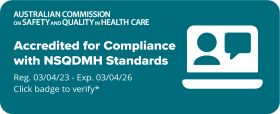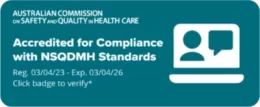Quick Facts
- Going through a traumatic event is shocking and distressing for anyone. It might be an experience like a road traffic accident. It could be a natural disaster like a bushfire or flood. You may have experienced violence, sexual assault or abuse, or even a war or torture. You may have experienced this event directly, or be strongly affected by seeing it happening to someone else. Whatever the traumatic experience, it can seem like you’ll never get over what happened.
- If you have an existing mental illness, then the traumatic event may be even more distressing, and may trigger or worsen the symptoms of your condition. It is even more important, then, to talk to a health professional about how you feel, and to get the support you need. Of course, some people may also find that the skills they have learned to manage their anxiety or other mental illness turn out to be useful when dealing with their reactions to a traumatic event.
-
What are the effects of a traumatic event?
As with anyone who has gone through a traumatic experience, you are likely to feel strong emotions. Fear, anxiety and emotional numbness are normal ways of reacting in this situation. It is also common to experience difficulty sleeping, to have nightmares, muscle tension, and to feel agitated or withdrawn. You may be in a state of constant alert for more danger. People often describe their sense of safety and security as being severely shaken.
It may be difficult at first to work out what is a reaction to the traumatic event, and what is a symptom of your mental illness or even a side-effect of medication, making it especially important to discuss how you feel with your doctor. A stressful event is more likely to be traumatic if:
- it happened unexpectedly
- you felt powerless to prevent it
- the event happened repeatedly
- someone was intentionally cruel
- it happened in childhood or adolescence.
When a traumatic event happens after other upsetting events (such as the death of a family member or friend, for example), or when there are already high stress levels, it is likely to be especially distressing. These feelings can lead to avoiding reminders of the event, and to having difficulty with everyday routines and maintaining relationships.
-
What if the distressing feelings don’t go away?
For a minority of people, these feelings persist or even worsen with time, especially when the support in the immediate aftermath of a traumatic event is no longer available. If the distressing reactions continue for more than a month, then see your doctor for an assessment to see if you have developed Post-traumatic stress disorder (PTSD), which can be an ongoing condition. Around 25% of all people who have experienced a traumatic event or series of events develop PTSD.
-
How do I find support?
Everyone deals with a traumatic event in their own way, and talking to trusted family and friends is often enough to help someone get through a tough time and deal with how they have reacted. If distressing feelings are severe or go on for more than four weeks, though, then it is important to discuss these frankly with a doctor, especially if you have an existing mental ilness. If necessary, you can be referred for psychological therapy to a psychologist or other health professional qualified to help people who have experienced traumatic events. Other treatment might include medication and support in the community.
-
How can I look after myself?
- Don’t isolate yourself. After a traumatic event you may feel like withdrawing from family and friends. This is natural, but connecting with other people will generally help you feel better, so do try to make an effort to stay in touch with others.
- Ask for support. Don’t bottle up feelings of distress, as this is likely to make them persist or even worsen. It’s important to tell people how you feel and to ask for the help you need.
- Establish a daily routine. To stay grounded after a traumatic event, it helps to have a routine with regular times for waking up, going to bed, eating, being sociable and physical active.
- Take care of your physical as well as mental health. A healthy body helps you to deal with stress. As well as rest, regular exercise and good food, do your best to avoid alcohol and drugs. These can worsen your symptoms as well as any feelings of depression, anxiety and isolation.
- What about supporting someone else? When supporting someone who’s been through a traumatic event it is helpful to offer practical support, and to simply listen to them in a non-judgmental and unobtrusive way. Don’t insist on talking about what has happened if the person doesn’t want to, but equally don’t avoid the subject. Recognise that everyone’s reaction to trauma is different. The best help is often straightforward practical assistance, including where to go for information and any support which is available.
-
How do I find out more?
Ask your doctor about any concerns you have, or contact the SANE Helpline on 1800 187 263 for information, advice and referral. SANE also produces a range of easy to read publications and multimedia resources on mental illness.










